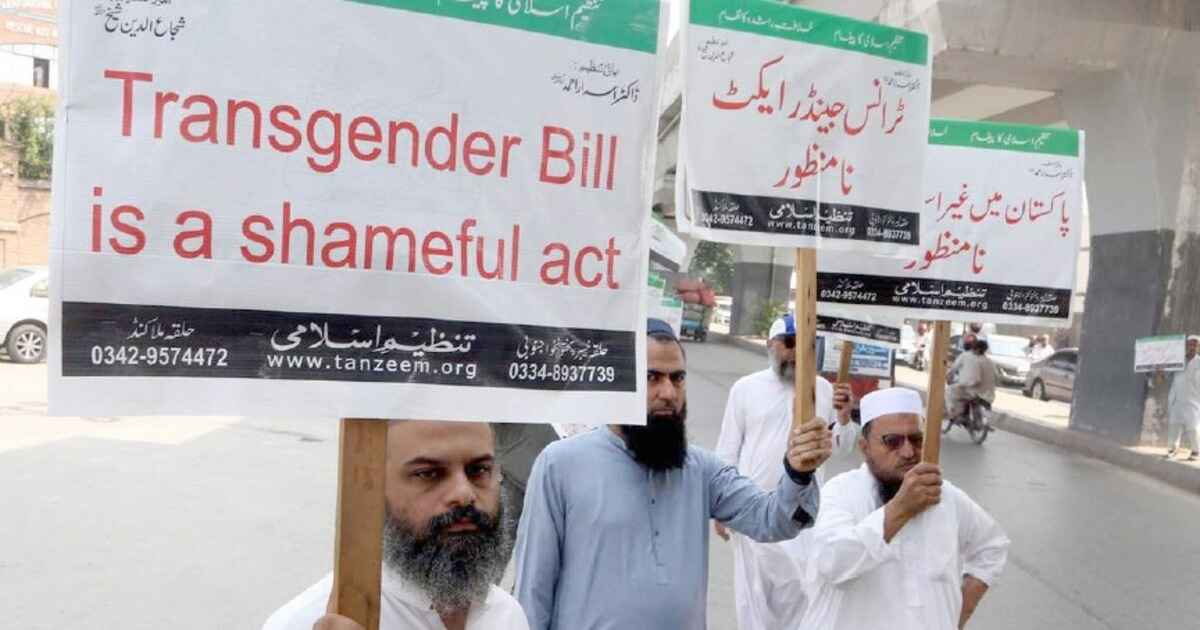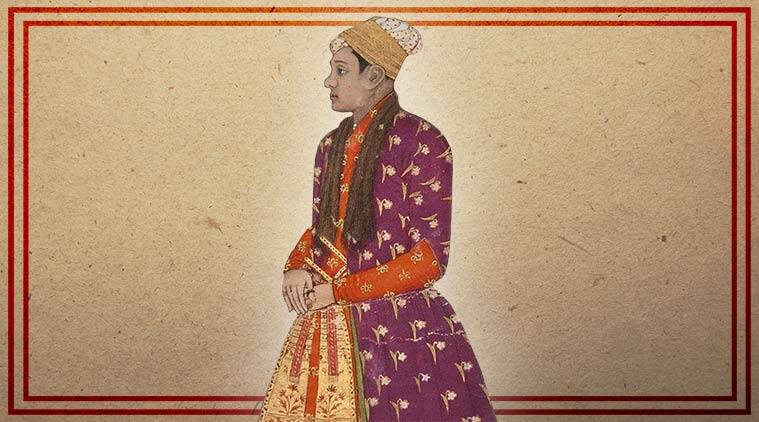Two faces of Pakistan: The Transgender RIghts Act and its Muslim opponents
Colin Stewart is a 45-year journalism veteran living in Southern…
Transgender Pakistanis face the complex challenges of life in a homeland with both a strong conservative Muslim society and a groundbreaking transgender rights law.
CLICK for a free subscription to Erasing 76 Crimes

The magazine Global Village Space examines the conflicts that LGBTQ Pakistans are experiencing:
Pakistan’s Transgender Act & its opponents
Pakistan, a conservative Muslim society, is trying hard to overcome its inertia and adjust to new norms arising from the needs of global integration – with mixed results.
By Imama Khan
Eunuchs, or “Khawaja Sira” as they were known, were the most dependable royal aides during the Mughal Empire. They commanded a great deal of respect and had even amassed considerable money in certain cases. They were mostly employed as harem stewards, while some became army generals, royal professors, and court consultants. Their power diminished with the fall of the Mughal Empire and the rise of the British. The colonial authorities adopted the “Criminal Tribes Act (CTC)” in 1871, under which Eunuchs had to be registered.

Victorian-era English brought into Hindustan their deep-seated suspicions of sodomy, castration, and abduction. Under the CTC, wearing female clothing was a punishable act for men. Moreover, the CTC outlawed “all persons of the male sex who admitted themselves to be “impotent” or were found so on medical examination. The principal source of eunuchs’ income and all of their privileges were thus taken away by colonial rule. They became more socially isolated and impoverished. Man and woman were just two sexes in the Christian world of English colonizers.
Historians claim that the British intended to eliminate the [‘third gender”] hijras as a distinct sociocultural group and gender identity. Most Hindustanis accepted the colonial power’s philosophy that became the societal norm. Religious leaders and mullahs of today are opposed to changes that protect the rights of the Hijra or “transgenders” without realizing that they are merely defending a colonial heritage.
Pakistan passes Transgender Act in 2018
To give transgender individuals legal equality and to protect their rights, Pakistan’s parliament passed the Transgender Persons (Protection of Rights) Act in 2018. The Act gives transgender persons in the country legal recognition and access to the same rights as cisgender people. According to the Act, transgender people can change their gender in [National Database and Registration Authority, or NADRA] records and apply for a driver’s license and passport.
The Act also made it illegal to harass transgender people and discriminate against them in social or educational settings. Additionally, it permits the development of safe houses, medical and educational facilities for transgender individuals, centers for their counseling, and transgender-specific cells in jails. Therefore, with the Transgender Act of 2018, transgender rights are at least legally guaranteed by the Pakistani state.
Amnesty International called the Act “commendable for its nuance, range and clarity” as “it allows the citizens of Pakistan to self-identify their gender, bans discrimination in public places like schools, work, public transportation and doctor’s offices.”
Opposition by religious organizations
Some religious organizations, however, believe that this Act is an effort to legalize homosexuality in the country. Jamaat-e-Islami (JI) Senator Mushtaq Ahmad Khan has even contested the Act before the Federal Shariat Court. Transgender persons claim that the 2018 Act does not address any form of sex change or permit “unnatural” sex, despite criticism of the Act from religious groups who see it as an effort to defend or promote homosexuality. However, the religious community is up in arms over the Act’s language, in particular where it says “a transgender person shall have a right to be recognized as per his or her self-perceived gender identity.”
The ruling [Pakistan Muslim League (Nawaz), or NML-N] generally represents conservative, right-of-the-center Punjabi politics, but the transgender rights Act has been supported by Law Minister Azam Nazeer Tarar, who stated that transgender persons should be accorded their legal, due process rights. According to Tarar, transgender individuals are also humans, and the state is responsible for ensuring that they have access to their fundamental rights. However, PML-N’s position is divorced from its conservative voter base and makes opponents suspicious that the whole initiative represents the appeasement of powerful western NGOs. However, Tarar has said he is ready to accommodate the modifications to the Act as suggested by its opponents to achieve broad-based support.
The widespread opposition to the bill and the distribution of unscientific information only serve to highlight that the issue cannot be resolved only by laws and regulations. The first and most important step in Pakistan should be to educate the general public about the issues so that they cannot be easily influenced by bringing in religious arguments that may not have much to do with the problem. Second, the absence of a penalty for violating the Act renders it impotent and provides no real motivation for people to abide by it. Additionally, there is no specific infrastructure in place to enforce the Act, especially when it comes to the education sector. While under the legislation, a trans person will find it easy to enter a school, Act does not provide any protection against the offensive treatment they may face inside the educational institution due to societal stigmas. The Act also does not address many urgent issues facing the trans community, such as hate crimes and inadequate healthcare.
Did the trans community get their rights?
Since 2015, 68 transgender people have died in Pakistan, and 1,500 have experienced numerous acts of sexual abuse. Khyber Pakhtunkhwa recorded 479 violent attacks against transgender people in 2018. The Trans Protection Act is not the first time that the state of Pakistan has made measures to protect the rights of transgender persons; in fact, in 2012, the Supreme Court of Pakistan made a significant decision on the rights of transgender people.
Apex court was moved by the fact that transgender people were being denied National Identity Cards (NIC), which made it impossible for them to exercise any of their fundamental rights as citizens of Pakistan. However, NADRA maintained that since many transgender people had unknown origins, they could not be awarded national identity cards, despite the fact that the fundamental reason for this discriminatory treatment was the inherent prejudices widespread in society. The Supreme Court specifically said that transgender people belonged to the third gender category and were “equal” citizens of Pakistan.
Therefore, the Court gave NADRA instructions to ensure that NICs were supplied to the transgender community so that others were aware of their situation. Following this ruling, three further distinct categories—male transgender, female transgender, and unisex gender—were added to NADRA papers. However, soon this constitutional development led to protests on the streets blocking its meaningful implementation.
Now since the 2018 Trans Protection Act lacks a criminal component, it has merely fulfilled the same purpose as the 2012 Supreme Court declaration. It has only provided nominal rather than substantive equality for trans individuals.
The real challenge is that most of Pakistani society is steeped in its conservative inertia, but governments are under pressure to adopt global norms. The 19th-century English colonizers could only understand a world consisting of men and women. But today, issues of acceptance, diversity, freedom of identity, etc., are becoming increasingly important. Diversity in the workplace, whether it be in terms of gender, race, ethnicity, or religion, is becoming more important. Muslims worldwide are trying harder to adapt to new sociocultural norms without surrendering their fundamental social and religious principles, and Pakistan is no exception to the trend.
Imama Khan is Research Associate with Global Village Space and pursuing Defense & Strategic Studies at Quaid-e-Azam University. Her articles have appeared in The News and The Pakistan Observer.




Regional human rights body accepts challenge to Jamaican ban on marriage equality